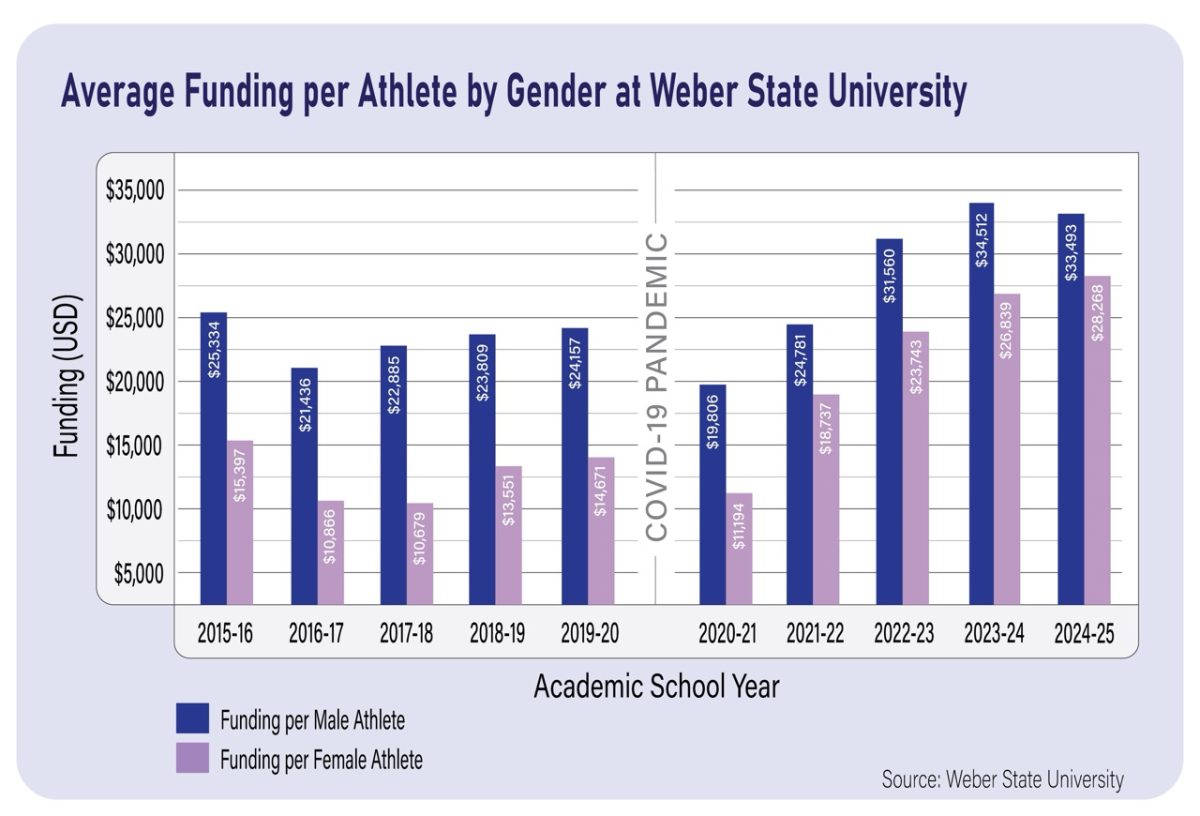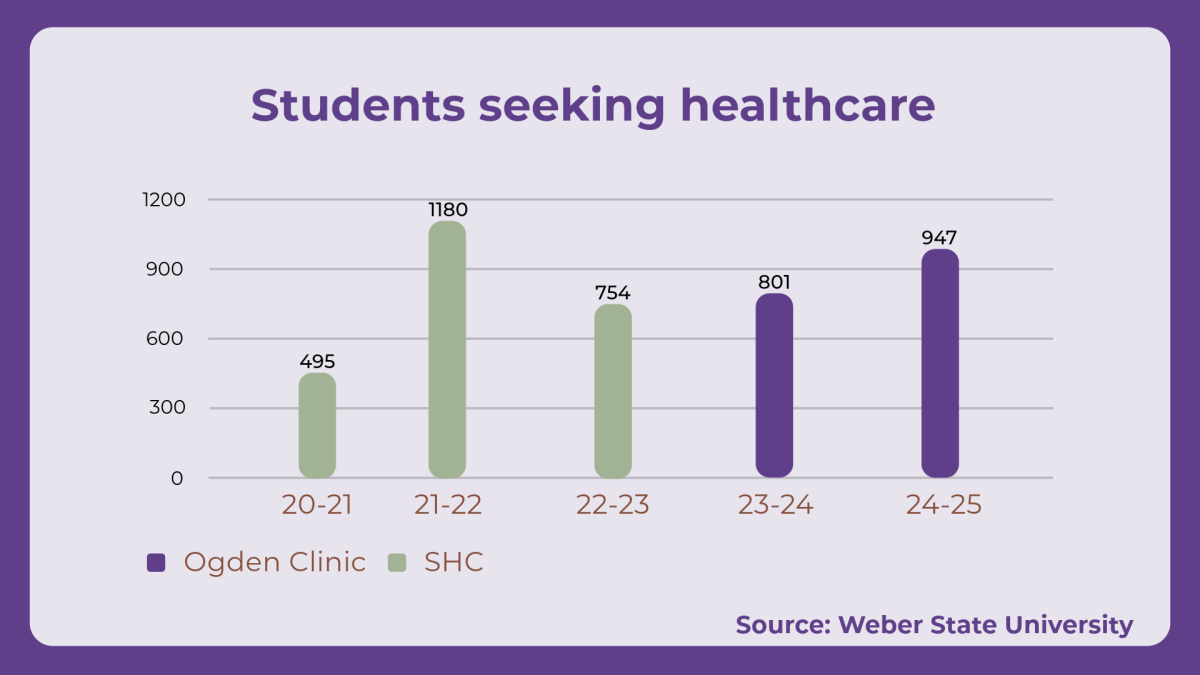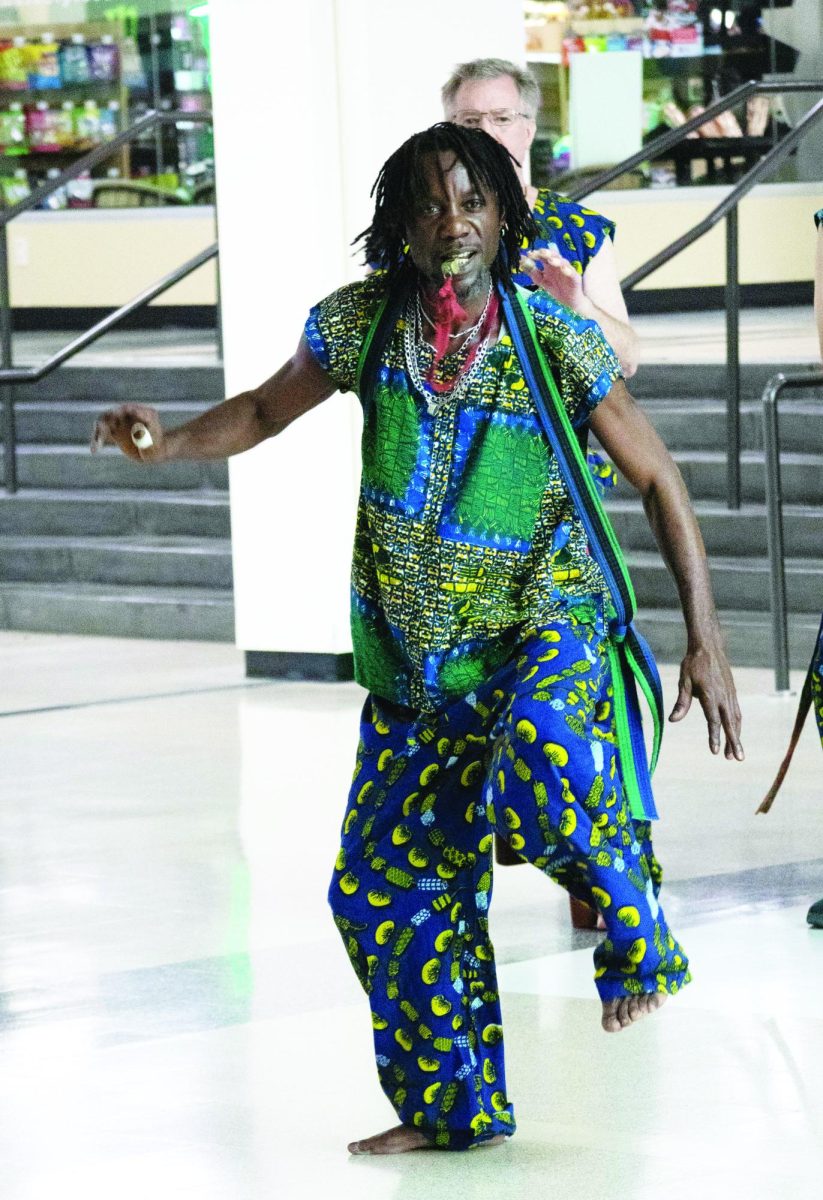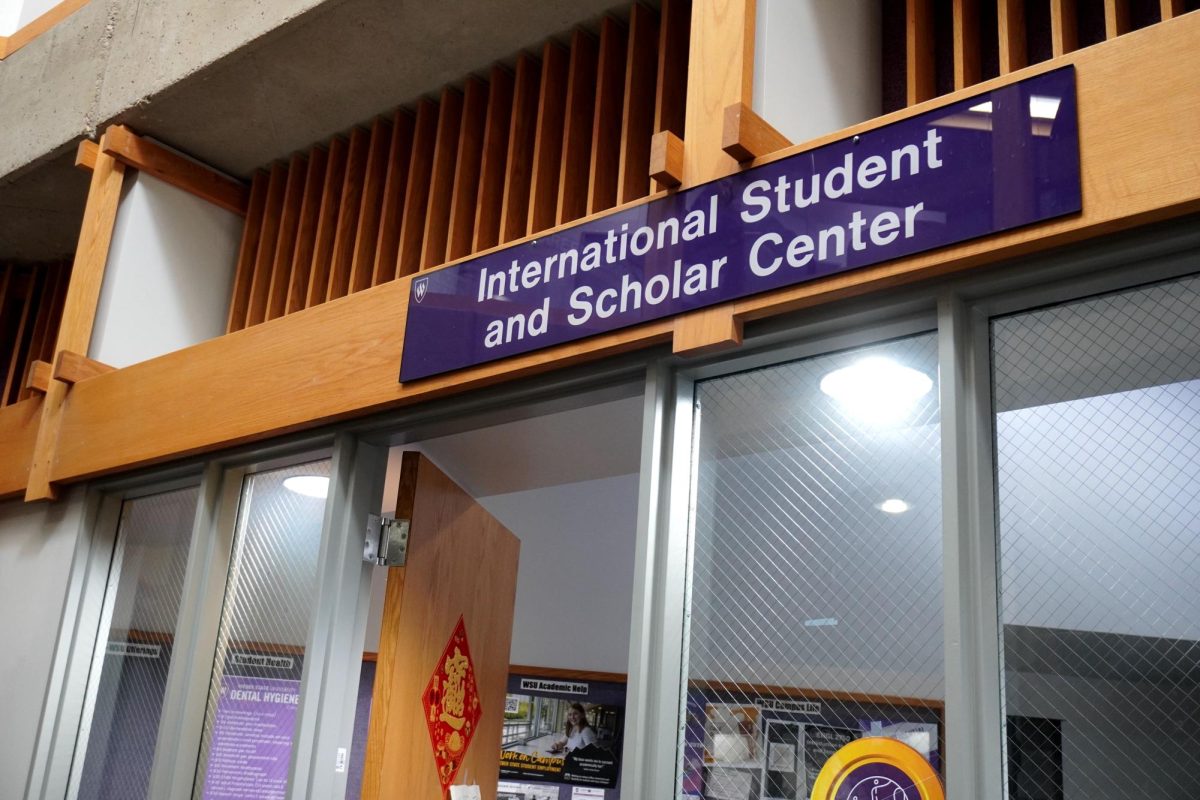The Weber State University Center for Diversity and Unity held a film screening and brief discussion Tuesday that featured Hispanic civil rights advocate Cesar Chavez.
While enjoying free popcorn and ice cream, the audience learned about the hardships most Hispanic farm laborers faced in the California grape industry during the ’60s.
Jeffrey Richey, assistant professor of history at WSU, said the film was a powerful way to show the struggles of the field workers while bringing more awareness to Hispanic history.

“Showing a film like this not only illustrates the historical challenges of field workings, but it also gives greater publicity to the struggles of Latinos in general society,” Richey said. “For some students, staff and faculty here this is our history.”
Mexican-American Cesar Chavez became a prominent union leader when he set out to improve the conditions and treatment of Hispanic laborers in California, according to the film.
Although Chavez led strikes and boycotts, he strongly promoted non-violence.
In the film, Chavez sacrificed his own life and fasted for 25 days to advocate non-violent protests and get the attention of California field owners.
For Richey, the goal for the event was to shed light on ordinary human beings in history that accomplished momentous things.
“With everything conspiring against (Chavez), he manages to get the most powerful field owners in California to sit down and accept his terms,” Richey said. “That is an amazing story. That’s why Cesar Chavez’s story is relevant.”
In showing the film, Richey hoped students gained a greater knowledge of Hispanic history and a new sense of appreciation for the fight towards human rights.
“I hope that it gives students the sense that the fight is not over,” Richey said. “It’s not even close to over. It’s just the beginning.”
The Center for Diversity and Unity continues to advocate cultural diversity and human rights across campus.
For Isabel Asensio, associate professor of Spanish, events like this week’s film screening are a great way to bring awareness to the Hispanic culture.
“We want to bring awareness and knowledge,” Asensio said. “I think events like this film about Chavez educate people.”
Asensio said she wants students to be more aware of stereotypes that surround Latinos. She added Hispanic Heritage Month is a great time to shed light on these misconceptions.
“My goal is to educate students about Hispanic cultures, because there is not just one Hispanic culture but many,” Asensio said.

Asensio said she wants to bring awareness to the fact that Hispanics are shaping the country in many different ways, and the Chavez film was a good way to show those changes.
According to Asensio, this was the first year the Center for Diversity and Unity hosted a series of events celebrating Hispanic Heritage Month.
General events are usually held every Tuesday across campus. All students are welcome to attend the meetings.
Richey said last week’s meeting achieved their goal to bring more awareness to diversity on campus.
Although Hispanic Heritage Month is coming to a close, Asensio hopes students will continue to stay involved, not just on campus but throughout the world.
“What happens in other countries affect us,” Asensio said. “If you want to have rights that defend you, if you want to have a healthy planet where you live, then you need to get involved.”



















